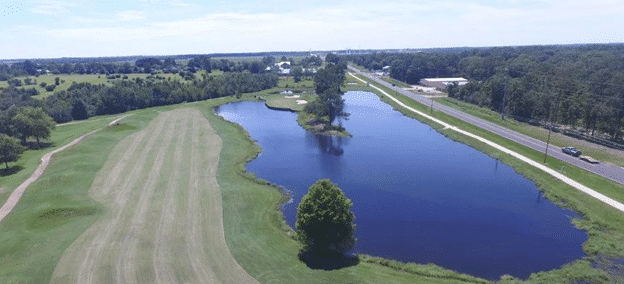Need to tackle a big clean-up project? From home renovations to spring cleaning, a dumpster rental can be your best friend. This comprehensive guide will walk you through everything you need to know about renting a dumpster, ensuring a smooth and efficient waste removal process.
What is Dumpster Rental?
Dumpster rental refers to the temporary leasing of a large, metal container designed for waste disposal. These containers, also known as roll-off containers or disposal bins, come in various sizes to accommodate different waste volumes. Services typically include delivery, pickup, and disposal of the collected waste, providing a convenient solution for managing large amounts of trash, debris, or recyclables. Dumpster rental services cater to residential, commercial, and construction needs, offering flexible rental periods to suit project timelines and waste disposal requirements. Choosing the right waste management service and dumpster size ensures a hassle-free experience.
Types of Dumpsters Available
Different projects generate different types of waste, requiring appropriately sized and designated dumpsters.
Residential Dumpsters
Residential dumpsters are ideal for smaller clean-up projects like spring cleaning, yard waste removal, and household junk removal. These typically range in size from 10 to 20 cubic yards and are perfect for managing everyday waste disposal needs. Common items include yard waste, furniture, appliances and other household waste. Many services also offer options for recycling certain materials.
Commercial Dumpsters
Commercial dumpsters are designed for larger-scale waste management needs. These are commonly used by businesses for bulk waste removal, including packaging, office supplies, and other commercial waste. Sizes vary considerably depending on the specific needs of the business. Many companies provide customized waste management plans to meet their specific requirements.
Construction & Renovation Waste
Construction and renovation projects generate significant amounts of debris. Specialized dumpsters for this purpose are often larger (up to 40 cubic yards) and designed to handle heavier, bulkier materials like concrete, wood, and demolition debris. These services often include specific protocols for handling hazardous materials to ensure safety and environmental compliance.
How to Rent a Dumpster
Renting a dumpster is a straightforward process. Let's break it down step by step.
Steps to Renting a Dumpster
Determine your needs: Assess the amount and type of waste you need to dispose of. This helps determine the appropriate dumpster size. Get quotes: Contact several dumpster rental companies to compare pricing and services. Choose a provider: Consider factors like pricing, delivery times, and customer reviews when making your decision. Schedule delivery and pickup: Coordinate the delivery and removal of the dumpster to align with your project timeline. Prepare the site: Ensure adequate space for dumpster placement, considering access and local regulations.
Pricing Information
Dumpster rental costs vary depending on several factors, including dumpster size, rental duration, location, and the type of waste being disposed of. Some companies offer discounts for longer rental periods or for specific waste types. Always get multiple quotes to compare prices and find the best value for your needs.
Benefits of Using a Dumpster Rental Service
Dumpster rental services offer numerous advantages over other waste disposal methods.

Using a dumpster rental service is incredibly convenient. It eliminates the hassle and time associated with multiple trips to the local landfill or waste disposal facility. This time-saving element can be particularly beneficial for large-scale projects. Additionally, proper waste disposal contributes to environmental protection and sustainability. Reputable companies often follow strict guidelines for waste sorting and recycling, minimizing environmental impact.

Tips for an Efficient Cleanup
Planning ahead is crucial for a smooth and efficient cleanup process.
Preparing for a Rental
Before the dumpster arrives, clear the designated area of any obstacles. This ensures easy access for delivery and pickup. Familiarize yourself with the company's guidelines on prohibited waste items to avoid additional fees. Consider the proximity of the dumpster to your waste disposal points for optimized workflow.
Best Practices During Cleanup
Sort your waste as you go. Separate recyclables and hazardous materials as needed. Maintain a clean workspace to ensure safe and efficient disposal. Remember, proper waste segregation simplifies the overall disposal process, reduces environmental impact, and potentially lowers costs.
Common Uses for Dumpster Rentals
Dumpster rentals find application across a wide range https://maps.app.goo.gl/FEQJ6nv9i6Y6bJ8t6 of situations.
Home renovations, moving cleanups, and estate cleanups are common scenarios where dumpsters prove invaluable. They provide a simple solution for large-scale waste management needs, minimizing disruption and ensuring efficient waste disposal for projects of all sizes. From construction debris to unwanted furniture, dumpsters are a quick and efficient solution.
Questions to Ask Your Dumpster Rental Company
Choosing the right company is key.
Before finalizing your rental, inquire about their service agreements, insurance and liability coverage, and customer support policies. Clarify any uncertainties regarding permitted waste types and potential charges for exceeding weight or volume limits. Ask about their commitment to environmentally responsible waste management practices.
FAQ
Frequently asked questions regarding dumpster rentals can often be resolved through simple online searches or calls to rental companies.
- What size dumpster do I need? This depends on the volume of waste you anticipate. Consult size guides provided by rental companies. Can I rent a dumpster for a one-time event? Absolutely. Most companies offer short-term rentals. What items cannot be placed in a dumpster? Hazardous materials, electronics, and certain types of construction debris are typically prohibited. Check with the company for specific restrictions. How long can I keep the dumpster? Rental periods vary, typically ranging from a few days to several weeks.
In conclusion, renting a dumpster simplifies large-scale waste disposal projects. By understanding dumpster types, rental processes, and best practices, you can choose the ideal solution for your specific needs. Contact a reputable dumpster rental service today to get started on your next project.